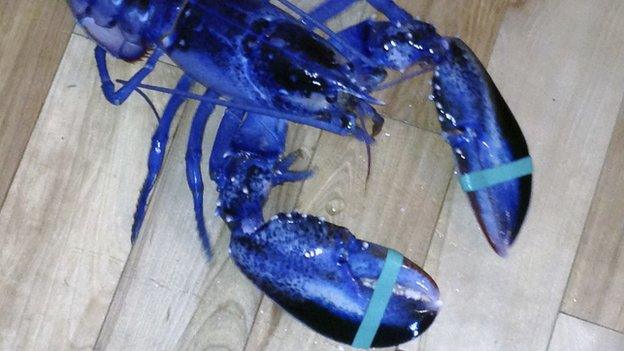Blue lobsters: What is the rare type of crustacean?
- Published
- comments
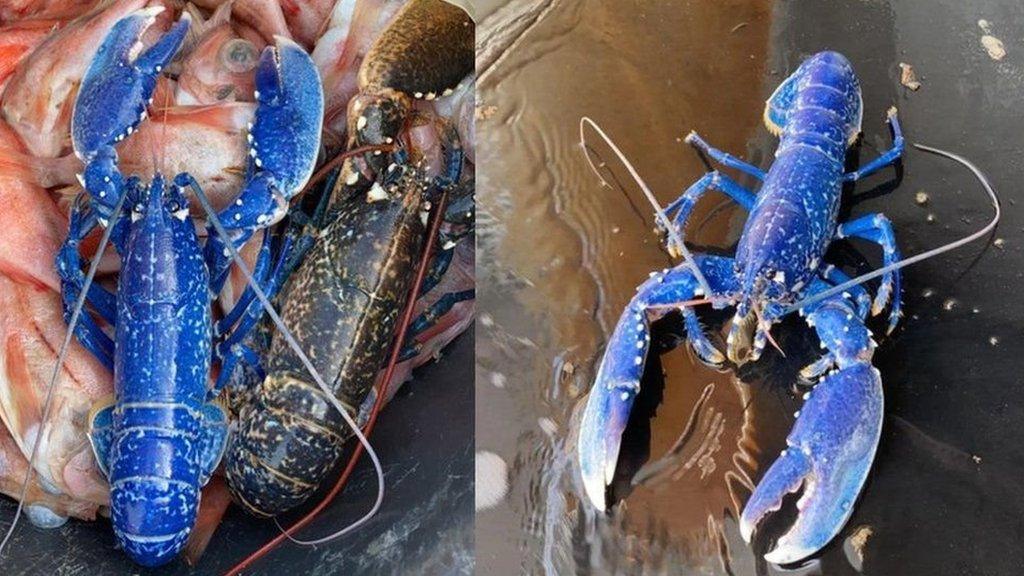
This lobster was caught in waters near Jersey
Have you ever heard of or seen a blue lobster? You wouldn't be alone if you haven't!
It's a pretty rare phenomenon, but a fisherman in Jersey stumbled across one of the colourful crustaceans in the sea whilst out on a fishing trip.
"It was in one of our 400 pots, we fish 25 pots to a string and it came up in one of them," the fisherman, Morgan Bizec, said.
Mr Bizec could've kept the rare lobster, but he decided to let it back into the ocean to help conserve the species.
However, the big question is - what exactly is it that makes a lobster like this one blue?!
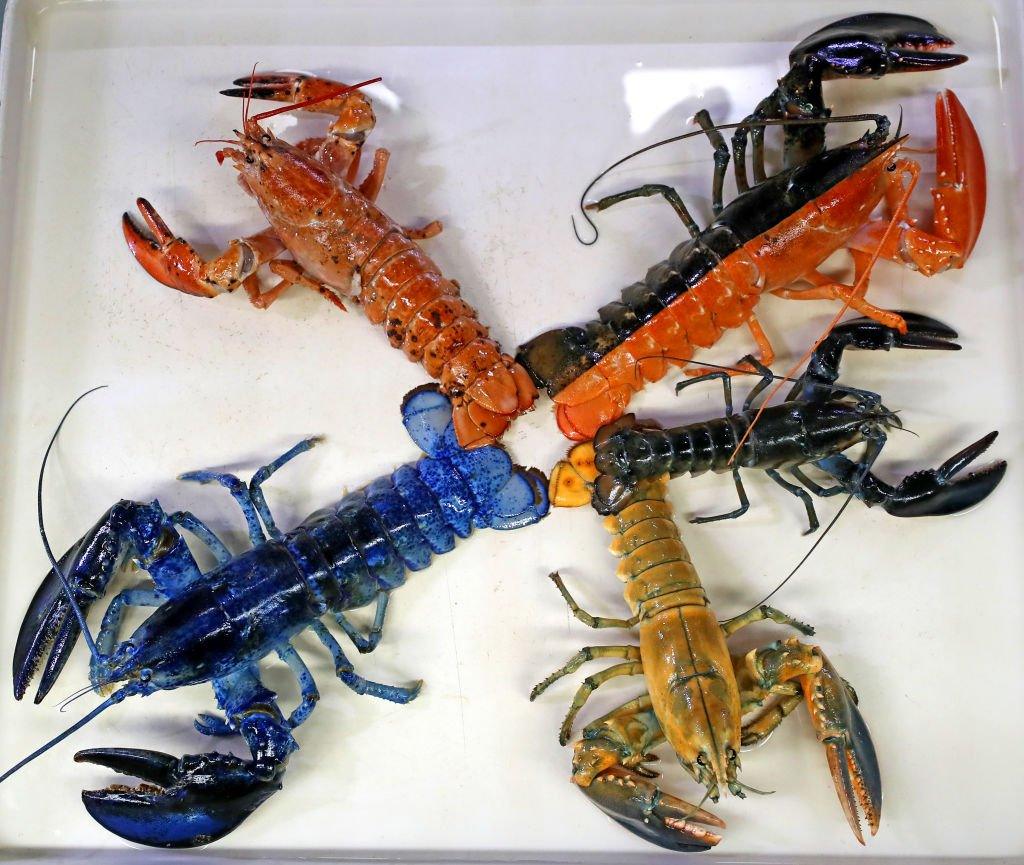
Lobsters can come in a variety of different colours!
Well, it's all down to a genetic difference which causes some lobsters to produce more of a certain protein than others.
Blue lobsters are believed to be so rare that the chances of catching one is estimated to be about one-in-two-million!
The majority of lobsters are a dark brown colour, but they can also come in other strange shades including orange, red and even yellow!
"These are very rare and unique findings, I've seen people catching lobsters of unusual colourations due to its abnormal genetics," said Gareth Jeffreys who is the chairman of the Marine Biology Section of the Société Jersiaise.
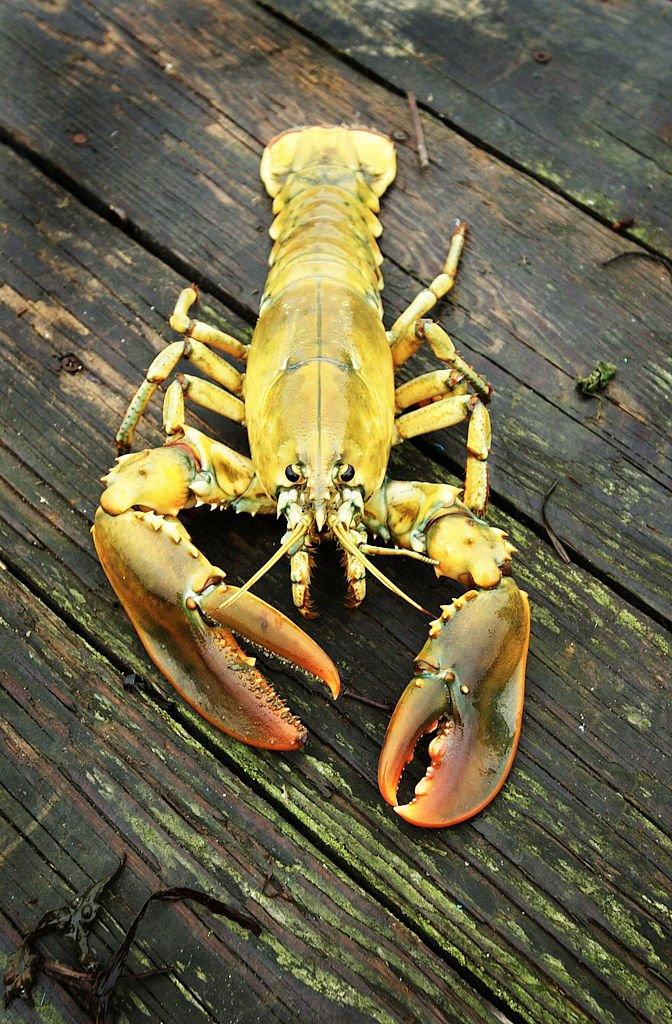
How vibrant is this yellow lobster!
1. Did you know that lobsters taste with their legs and feet and chew their food with their stomachs! The crustaceans have little hairs on their legs and feet that help them figure out exactly what they're eating. Lobsters' 'teeth', which are known as gastric mill, can be found in their stomachs and this is where they grind down their food.
2. Lobsters are known for their big claws, but did you know that if they lose one, they can grow it back! This happens during a process called moulting, when the species sheds its outer layer to reveal a fully formed new shell underneath. However, it'll take about five years for a lobster to regrow a claw which is the size of its original one.
3. Lobsters have a varied diet consisting of sea food like fish, crabs, clams, mussels and sea urchins, but did you know that they can also eat each other! This can happen if they find themselves trapped in a small space with another lobster.
- Published6 August 2021
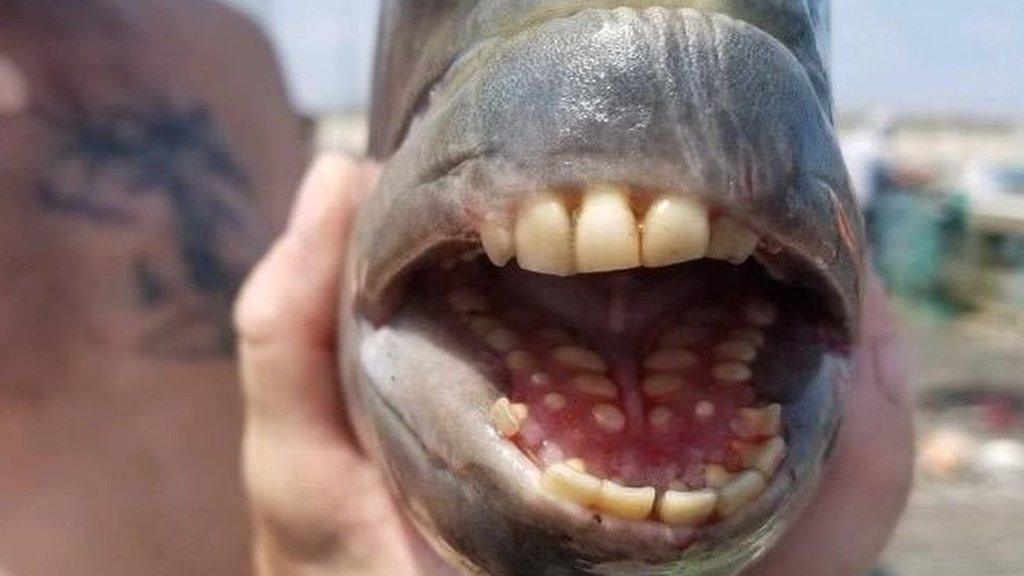
- Published8 October 2020
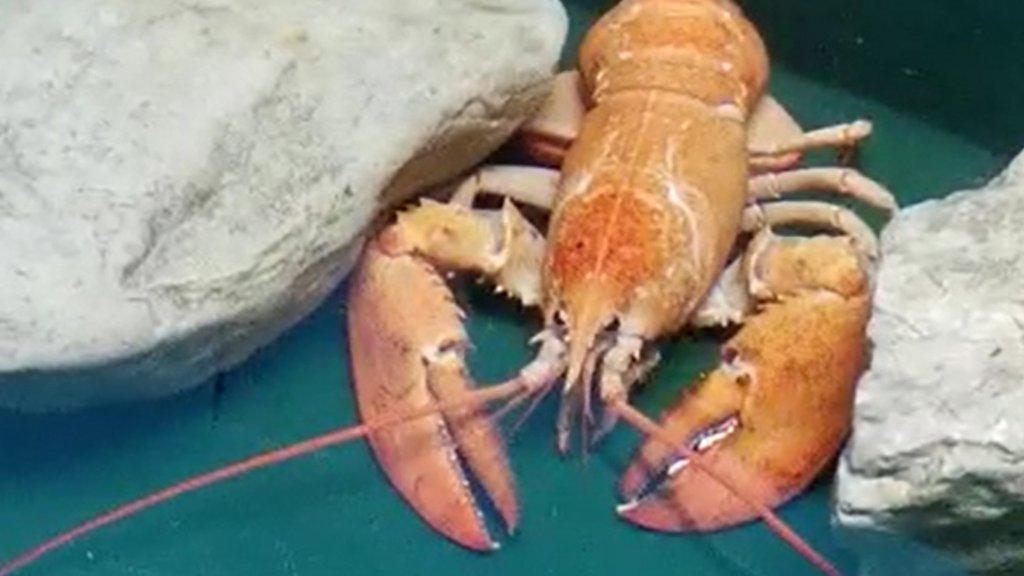
- Published26 August 2014
